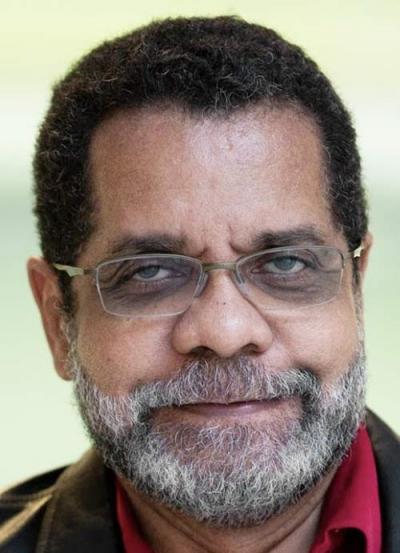

 As a designated committee of experts prepares to draft a new treaty to combat the use of information and communications technologies in cybercrime at the UN in January 2022, it is paramount that other stakeholders oversee these discussions to avoid violating human rights on the Internet. This initiative was kickstarted by a 2019 resolution led by Russia and endorsed by other countries considered by many to behavior controversially on cybersecurity matters, such as China, Venezuela, Cambodia, North Korea, and others. more
As a designated committee of experts prepares to draft a new treaty to combat the use of information and communications technologies in cybercrime at the UN in January 2022, it is paramount that other stakeholders oversee these discussions to avoid violating human rights on the Internet. This initiative was kickstarted by a 2019 resolution led by Russia and endorsed by other countries considered by many to behavior controversially on cybersecurity matters, such as China, Venezuela, Cambodia, North Korea, and others. more
 Earlier this year, The Alliance for Safe Online Pharmacies (ASOP) released findings from their 2021 survey on American Perceptions and Use of Online Pharmacies. According to ASOP's data, U.S. residents' use of online pharmacies to purchase prescription medications continues to increase yearly. In 2021, 42% of Americans purchased medications from online pharmacies, either for themselves or family members under their care. This is a significant increase of 7% since just last year. more
Earlier this year, The Alliance for Safe Online Pharmacies (ASOP) released findings from their 2021 survey on American Perceptions and Use of Online Pharmacies. According to ASOP's data, U.S. residents' use of online pharmacies to purchase prescription medications continues to increase yearly. In 2021, 42% of Americans purchased medications from online pharmacies, either for themselves or family members under their care. This is a significant increase of 7% since just last year. more
Join the upcoming discussion today on the past, present and future of the Internet in Afghanistan in the context of the Middle East. Panelists will address the national and international challenges and opportunities Afghans face in the changing environment of global Internet governance and sanctions laws. more
 For those who follow the issue of blocking illegal content from the Internet, there is an interesting development in relation to this issue here in Germany, and I will tell you a little about it. One way to make it difficult to access illegal content is to block it directly in the DNS. But what is DNS for? Basically, it serves to translate the domain name into the IP of the server that is hosting the content. By blocking directly at the DNS level, a query to a domain will no longer bring the server's IP number, and with that, the user no longer accesses that content. more
For those who follow the issue of blocking illegal content from the Internet, there is an interesting development in relation to this issue here in Germany, and I will tell you a little about it. One way to make it difficult to access illegal content is to block it directly in the DNS. But what is DNS for? Basically, it serves to translate the domain name into the IP of the server that is hosting the content. By blocking directly at the DNS level, a query to a domain will no longer bring the server's IP number, and with that, the user no longer accesses that content. more
 Another challenging year due to the Corona pandemic is coming to a close, and ICANN has held another virtual annual general meeting (AGM) -- the 6th in a row. Unlike last year, today, we can hope for a better next year. In many regions of the world, the figures look better, and the opening is progressing. That at least gives us hope that ICANN will hold face-to-face meetings again next year -- at least they are planning it so. That should also make it easier for the new Nominating Committee (NomCom). more
Another challenging year due to the Corona pandemic is coming to a close, and ICANN has held another virtual annual general meeting (AGM) -- the 6th in a row. Unlike last year, today, we can hope for a better next year. In many regions of the world, the figures look better, and the opening is progressing. That at least gives us hope that ICANN will hold face-to-face meetings again next year -- at least they are planning it so. That should also make it easier for the new Nominating Committee (NomCom). more
 ICANN has once again acceded to the wants of contracted parties and is at risk of abdicating its duty to act in the global public interest when it comes to WHOIS policy. Its inability or unwillingness to date to reign in bad WHOIS policy, driven by contracted party interests, flies in the face of its previously-expressed policy goal “to ensure the continued availability of WHOIS to the greatest extent possible while maintaining the security and stability of the Internet’s system of unique identifiers.” more
ICANN has once again acceded to the wants of contracted parties and is at risk of abdicating its duty to act in the global public interest when it comes to WHOIS policy. Its inability or unwillingness to date to reign in bad WHOIS policy, driven by contracted party interests, flies in the face of its previously-expressed policy goal “to ensure the continued availability of WHOIS to the greatest extent possible while maintaining the security and stability of the Internet’s system of unique identifiers.” more
 United States President Biden has recently commented: “But let me be very clear: Capitalism without competition isn’t capitalism; it’s exploitation. Without healthy competition, big players can change and charge whatever they want and treat you however they want. […] So, we know we’ve got a problem – a major problem.” It’s not every day you hear the President of the United States take on the very industry that supported his national economy remaining the world’s richest over the past couple of decades. Yet his tone resonates with a growing unease within the US... more
United States President Biden has recently commented: “But let me be very clear: Capitalism without competition isn’t capitalism; it’s exploitation. Without healthy competition, big players can change and charge whatever they want and treat you however they want. […] So, we know we’ve got a problem – a major problem.” It’s not every day you hear the President of the United States take on the very industry that supported his national economy remaining the world’s richest over the past couple of decades. Yet his tone resonates with a growing unease within the US... more
 As we work on this final CircleID essay addressing the last four Articles in the UDHR, we explore how the UDHR provides the principles on which to build the rights and responsibilities of digital citizenship and bring integrity and trust to cyberspace and the Internet ecosystem. We reflect on what we have learned. For us, the authors of this series, we are reminded that trust in the processes of government, business entities, and society is central to the wellbeing of society, our communities, our families, and ourselves. more
As we work on this final CircleID essay addressing the last four Articles in the UDHR, we explore how the UDHR provides the principles on which to build the rights and responsibilities of digital citizenship and bring integrity and trust to cyberspace and the Internet ecosystem. We reflect on what we have learned. For us, the authors of this series, we are reminded that trust in the processes of government, business entities, and society is central to the wellbeing of society, our communities, our families, and ourselves. more
 It’s now more than 6 weeks since the Cuban political protests and accompanying Internet service disruption. Will they lead to a long-run change in the Cuban Internet or the Cuban political situation? Let’s start with the Cuban Internet. Many of the Internet changes during the protests have disappeared. Total daily traffic, the ratios of mobile to fixed traffic, and human to automated posts, and the proportion of blocked Signal sessions are about what they were before the protests. more
It’s now more than 6 weeks since the Cuban political protests and accompanying Internet service disruption. Will they lead to a long-run change in the Cuban Internet or the Cuban political situation? Let’s start with the Cuban Internet. Many of the Internet changes during the protests have disappeared. Total daily traffic, the ratios of mobile to fixed traffic, and human to automated posts, and the proportion of blocked Signal sessions are about what they were before the protests. more
 The 15th edition of the European Summer School on Internet Governance (EuroSSIG) took place recently in Meissen/Germany, from August 15 -20, 2021. It was the second hybrid meeting under the challenging condition of the pandemic. Eighteen fellows from 15 countries representing all regions of the world traveled to Germany, as well as five faculty members. Fifteen faculty members joined via Zoom from California to Beijing. The agenda of the one-week course included a broad range of topics such as cybersecurity, digital diplomacy, IGF+, DNS Abuse, human rights, digital trade and taxation, as well as artificial intelligence. more
The 15th edition of the European Summer School on Internet Governance (EuroSSIG) took place recently in Meissen/Germany, from August 15 -20, 2021. It was the second hybrid meeting under the challenging condition of the pandemic. Eighteen fellows from 15 countries representing all regions of the world traveled to Germany, as well as five faculty members. Fifteen faculty members joined via Zoom from California to Beijing. The agenda of the one-week course included a broad range of topics such as cybersecurity, digital diplomacy, IGF+, DNS Abuse, human rights, digital trade and taxation, as well as artificial intelligence. more
 In April, I published an article, The Multistakeholder Moment of Truth: Will Stakeholders Hold ICANN Accountable?, alerting stakeholders that ICANN is violating its legal agreements with the U.S. Government -- namely the InterNIC licensing agreement and merged Memorandum of Understanding. At that time, I warned that it is essential for stakeholders not to remain silent in the face of this transgression, "hoping that such behavior left unchecked will end of its own accord." more
In April, I published an article, The Multistakeholder Moment of Truth: Will Stakeholders Hold ICANN Accountable?, alerting stakeholders that ICANN is violating its legal agreements with the U.S. Government -- namely the InterNIC licensing agreement and merged Memorandum of Understanding. At that time, I warned that it is essential for stakeholders not to remain silent in the face of this transgression, "hoping that such behavior left unchecked will end of its own accord." more
 It was on the cards. For weeks, Jack Ma, the digital tycoon of China, founder of Ant and of e-commerce giant Alibaba (the Chinese Amazon), disappeared off the radar after he was summoned by the Chinese Government and most likely lectured on the fact that his company was out of step with official Chinese policy. Consequently, the Government levied a multi-billion dollar antitrust fine against Alibaba, deleted its popular web browser from app stores and took several other actions against the company. more
It was on the cards. For weeks, Jack Ma, the digital tycoon of China, founder of Ant and of e-commerce giant Alibaba (the Chinese Amazon), disappeared off the radar after he was summoned by the Chinese Government and most likely lectured on the fact that his company was out of step with official Chinese policy. Consequently, the Government levied a multi-billion dollar antitrust fine against Alibaba, deleted its popular web browser from app stores and took several other actions against the company. more
 In an earlier post, I looked at the use of the Internet by anti-government protesters last month and the government's attempt to block them. Now, a few weeks later, let's see how the Internet changed after my July 18 post. The protesters used messaging and social media services, which the government tried to block, and posted images and videos of protests around the island. more
In an earlier post, I looked at the use of the Internet by anti-government protesters last month and the government's attempt to block them. Now, a few weeks later, let's see how the Internet changed after my July 18 post. The protesters used messaging and social media services, which the government tried to block, and posted images and videos of protests around the island. more
 As we face another surge in the Delta variant within the COVID-19 pandemic, the traditional face-to-face schools of Internet Governance continue to be forced to rethink their typical programs and adapt their modalities of delivering Internet Governance education. Everyone from the administrators, educators and the participants needed to adapt to the new reality of online learning and the various digital platforms with its associated cost and benefits. more
As we face another surge in the Delta variant within the COVID-19 pandemic, the traditional face-to-face schools of Internet Governance continue to be forced to rethink their typical programs and adapt their modalities of delivering Internet Governance education. Everyone from the administrators, educators and the participants needed to adapt to the new reality of online learning and the various digital platforms with its associated cost and benefits. more
 Technical management of the Internet was delegated to ICANN by the U.S. government because it was believed that the private sector would be more agile and responsive to the needs of globally distributed stakeholders. However, this optimism and the faith it has produced has proven to be misplaced since ICANN's multi-stakeholder governance continues falling far short of the basic expectations set when it was created. more
Technical management of the Internet was delegated to ICANN by the U.S. government because it was believed that the private sector would be more agile and responsive to the needs of globally distributed stakeholders. However, this optimism and the faith it has produced has proven to be misplaced since ICANN's multi-stakeholder governance continues falling far short of the basic expectations set when it was created. more